December 12, 2022 •
Alabama Ethics Commission Increases De Minimis Amount
The Alabama Ethics Commission voted to increase the amount of de minimis items a lobbyist or lobbyist employer may give to public officials. The new amounts are $32 or less per occasion with an aggregate of $64 or less per […]
The Alabama Ethics Commission voted to increase the amount of de minimis items a lobbyist or lobbyist employer may give to public officials.
The new amounts are $32 or less per occasion with an aggregate of $64 or less per calendar year.
Previously the amount was $25 or less per occasion with an aggregate of $50 or less in a calendar year.
The change will only affect the definition of de minimis and has no effect on the exception for meals within the Alabama Code.
January 21, 2021 •
President Biden Issues Ethics Executive Order
On January 20, President Joseph R. Biden signed an Executive Order mandating enhanced ethics rules for executive branch appointees. “Executive Order on Ethic Commitments by Executive Branch Personnel” requires new appointees sign and be contractually committed to the ethics pledge […]
On January 20, President Joseph R. Biden signed an Executive Order mandating enhanced ethics rules for executive branch appointees. “Executive Order on Ethic Commitments by Executive Branch Personnel” requires new appointees sign and be contractually committed to the ethics pledge outlined in the order.
Appointees are prohibited from accepting gifts, with limited exceptions, from registered lobbyists and lobbying organizations for the duration of their service as appointees.
Appointees are also prohibited from participating in matters involving specific parties directly and substantially related to a former employer for two years after the date of appointment. Federal lobbyists and individuals registered under the Foreign Agents Registration Act may not seek or accept employment with any executive agency with respect to which he or she lobbied within the two years before the date of the appointment. The order also prohibits certain golden parachutes from former employers and includes a general two-year prohibition on lobbying after leaving a position.
Covered appointees include every full-time, non-career Presidential or Vice-Presidential appointee, non-career appointees in the Senior Executive Service, and appointees to certain positions excepted from the competitive service. It does not include any person appointed as a member of the Senior Foreign Service or solely as a uniformed service commissioned officer.
December 14, 2020 •
Hawaii Ethics Commission Publishes Administrative Rules, Lobbyist Training
The Hawaii Ethics Commission administrative rules on gifts and lobbying are now live. Additionally, optional lobbyist training sessions will take place on the mornings of January 6, 2021 and January 12, 2021 at 10 a.m. Title 21 of the Hawaii […]
The Hawaii Ethics Commission administrative rules on gifts and lobbying are now live.
Additionally, optional lobbyist training sessions will take place on the mornings of January 6, 2021 and January 12, 2021 at 10 a.m.
Title 21 of the Hawaii Administrative Rules provides greater clarity on lobbyist registration and reporting requirements of the Hawaii Revised Statutes and memorializes longstanding ethics commission advice.
Noteworthy rule provisions include the requirement that expenditures are reported on an accrual basis, and a lobbyist registration exemption for individuals who work behind the scenes to draft testimony, research, and work under the direction of a registered lobbyist without directly communicating with legislative or executive branch officials.
Lobbyists interested in attending either of the training sessions may register at: https://ethics.hawaii.gov/ethicstraining_schedule/.
July 2, 2020 •
San Jose Council Approves Ballot Measure Barring Contributions and Gifts from Lobbyists
The City Council approved a November ballot measure relating to contributions and gifts from lobbyists. The proposed measure would bar lobbyists from making campaign contributions. The mayor, council members, and senior administrators would also be barred from accepting gifts from […]
The City Council approved a November ballot measure relating to contributions and gifts from lobbyists.
The proposed measure would bar lobbyists from making campaign contributions.
The mayor, council members, and senior administrators would also be barred from accepting gifts from lobbyists or city contractors.
The mayor and council members would also be required to sit out of any vote involving a person or entity contributing to their campaign or other cause in the last 12 months and the three months following the vote.
The proposed initiative would also give the mayor the power to hire and fire the city manager and department heads starting January 1, 2023.
The measure also includes a provision to align San Jose’s mayoral races with the presidential election cycle in an effort to increase voter turnout.
The City Council will hold a special meeting on July 28 where they will review the proposed ballot language before sending it off to the county Registrar of Voters.
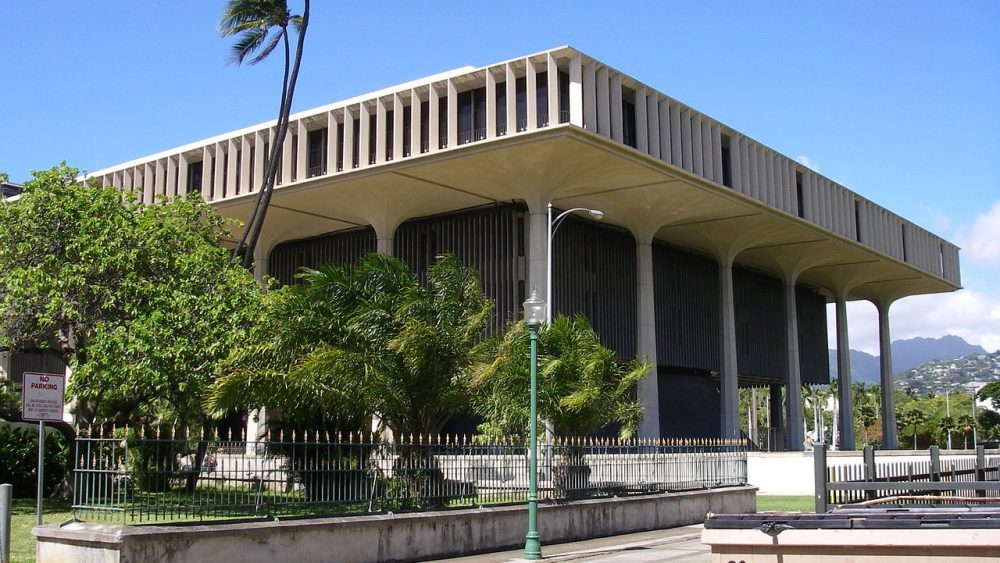
The Hawaii Ethics Commission approved a package of proposals on June 18. These proposals amend and adopt portions of the Hawaii Administrative Rules related to lobbying and gifts. The amendments in chapters one through six address the Commission’s operations and […]
The Hawaii Ethics Commission approved a package of proposals on June 18. These proposals amend and adopt portions of the Hawaii Administrative Rules related to lobbying and gifts.
The amendments in chapters one through six address the Commission’s operations and procedures. Additionally, chapters seven through 10 now include sections on “Lobbying” and “Gifts and Fair Treatment”.
The proposed rules do not purport to amend any statutes. Rather, they are designed to interpret and execute the statutes enacted by the Legislature.
Section 21-10-5
Section 21-10-5, statement of contributions and expenditures, addresses the statutory requirement that statements of contributions and expenditures must be filed by up to three different entities. This could be the client, the employing organization, and the lobbyist. Or, in the case of lobbyists employed in-house by the client, the client or employing organization and the lobbyist.
This rule creates a single, client-based report rather than requiring separate reports from the client, the employing organization, and the lobbyist. This single, client-based reporting method avoids double or sometimes triple reporting. Additionally, it eliminates the practice, when clients or employing organizations cover expenditures, of having lobbyists submit reports listing “zero” expenditures.
Section 21-10-1
Section 21-10-1 contains definitions of “direct lobbying” and “grassroots lobbying” to demonstrate that lobbying can be both direct and indirect, consistent with the definition of lobbying in Section 97-1 of the Hawaii Revised Statutes. Under Rule 21-10-1, direct lobbying is defined as any oral or written communication with a legislator, an employee, intern, or volunteer of the legislature or an agency that would appear to a reasonable person to be an attempt to influence legislation or rule-making.
Additionally, grassroots lobbying is defined as any oral or written communication directed at any member of the public that expresses an opinion about existing or potential legislation, administrative rule, or ballot issue and includes an explicit or implied call to action.
Section 21-7-6
Section 21-7-6, valuation of gifts, defines the value of a gift as the cost that a member of the public would reasonably expect to incur to purchase it. For example, If the face value of a ticket to an event is $100, but the event is sold out and tickets on the secondary market are $500 at the time the ticket is offered as a gift, the value of the ticket is $500.
The rules must now be approved by the Department of the Attorney General, and then by the governor. Once approved by both offices, they will be posted with the Office of the Lieutenant Governor for 10 days before becoming effective.
May 20, 2019 •
Missouri Legislature Adjourns Sine Die
The first regular session of the 100th General Assembly adjourned May 17 at 6 p.m. after four months in session. Several lobbying bills were introduced, including House Joint Resolution 48 which made its way to the Senate Fiscal Oversight Committee. […]
The first regular session of the 100th General Assembly adjourned May 17 at 6 p.m. after four months in session.
Several lobbying bills were introduced, including House Joint Resolution 48 which made its way to the Senate Fiscal Oversight Committee.
The committee voted do not pass on May 13. The bill would have banned all lobbyist gifts to lawmakers instead of the current $5 maximum limit.
Similarly, House Bill 1199 was introduced to amend the definition of a lobbyist principal to add an entity with authority to direct the lobbyists’ activities. The bill made its way through the Legislative Oversight Committee but did not pass either chamber.
The General Assembly is scheduled to reconvene on January 15, 2020.
April 18, 2019 •
Ethics Bill Progressing In North Dakota Legislature
The North Dakota Senate approved House Bill 1521 on Wednesday, April 17. The bill would implement the state’s new ethics rules established by the voter’s passage of Measure 1 last year. House Bill 1521 prohibits a lobbyist from giving, offering, […]
 The North Dakota Senate approved House Bill 1521 on Wednesday, April 17.
The North Dakota Senate approved House Bill 1521 on Wednesday, April 17.
The bill would implement the state’s new ethics rules established by the voter’s passage of Measure 1 last year.
House Bill 1521 prohibits a lobbyist from giving, offering, soliciting, initiating, or facilitating a gift over $60 to a public official.
A lobbyist will also be required to file a report with the secretary of state if they spend more than $200 on lobbying.
The bill has been returned to the House for consideration before the end of the legislative session on April 26.
February 20, 2019 •
Arkansas Ethics Commission Clarifies Gift Exception in Advisory Opinion
The Arkansas Ethics Commission clarified a gift exception in Advisory Opinion No. 2019-EC-001. A local lobbying firm wants to hold a 20th anniversary event and invite public officials. In turn, the firm requested more information regarding the exception permitting anything […]
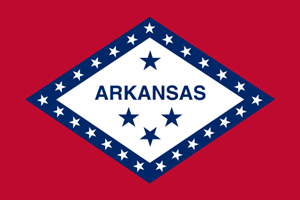 The Arkansas Ethics Commission clarified a gift exception in Advisory Opinion No. 2019-EC-001.
The Arkansas Ethics Commission clarified a gift exception in Advisory Opinion No. 2019-EC-001.
A local lobbying firm wants to hold a 20th anniversary event and invite public officials. In turn, the firm requested more information regarding the exception permitting anything to be given to public officials if it is also readily available to the general public.
The commission stated the exception does not apply to an event where invitations are issued to friends, family members, clients, former clients, and business associates only.
In order for an event to be readily available to the general public, the general public would have to be made aware of the event’s existence.
For the event to qualify for the gift exception, an entity could make an announcement of the event on widely-used social media platforms and through traditional media, such as a state-wide newspaper, to make sure the general public knows the event is not limited to invitees.
Additionally, holding an event at a venue open to the public, like a park or convention center, would help meet the gift exception.
December 21, 2018 •
News You Can Use Digest – December 20, 2018
Federal: Lawmakers Push Review of New Member Events After Complaints Over Lobbyists at Harvard Orientation Washington Post – Jeff Stein | Published: 12/14/2018 Harvard invited lobbyists to speak at its orientation program for incoming members of Congress and paid for […]

Federal:
Lawmakers Push Review of New Member Events After Complaints Over Lobbyists at Harvard Orientation
Washington Post – Jeff Stein | Published: 12/14/2018
Harvard invited lobbyists to speak at its orientation program for incoming members of Congress and paid for travel and board for the newly elected members of the House to attend. Under House rules, that arrangement would typically be subject to an extensive review by the ethics committee before members could be cleared to attend. But Harvard’s program was not for sitting members of Congress, it was for members to-be, who will not be sworn in until January. Lawmakers say they are planning to review House ethics rules for incoming members, bringing new scrutiny to Harvard’s decades-long orientation program, as well as a broader review of how lobbyists reach incoming freshman lawmakers.
Targets of U.S. Sanctions Hire Lobbyists with Trump Ties to Seek Relief
MSN – Kenneth Vogel (New York Times) | Published: 12/11/2018
As the Trump administration has increasingly turned to sanctions, travel restrictions, and tariffs to punish foreign governments as well as people and companies from abroad, targets of those measures have turned for assistance to K Street’s corridor of law, lobbying, and public relations firms. The work can carry reputational and legal risks, since clients often come with toxic baggage and the U.S. Treasury Department restricts transactions with entities under sanctions. As a result, it commands some of the biggest fees of any sector in the influence industry. And some of the biggest payments have been going to lobbyists, lawyers, and consultants with connections to Trump or his administration.
From the States and Municipalities:
Arizona: Bennett Loses Court Bid to Get Public Financing for Gubernatorial Campaign
Arizona Capitol Times – Howard Fischer (Capitol News Srevices) | Published: 12/14/2018
A judge rejected the latest bid by Ken Bennett to get public financing for his failed gubernatorial bid in Arizona, or at least reimburse himself for the money he spent. Maricopa County Superior Court Judge Teresa Sanders acknowledged Bennett said he did have enough valid signatures on five-dollar donation forms to qualify for $839,704 which was available for candidates in the Republican primary for governor earlier this year. Bennett said he fell short only because some county election officials incorrectly classified some of them as invalid. But Sanders said there is nothing in Arizona law that provides an opportunity for a candidate to “rehabilitate” previously disqualified contribution slips.
Florida: ‘He Got Screwed’: Gillum absent from indictment after DeSantis bashed him as corrupt
Politico – Marc Caputo | Published: 12/12/2018
City Commissioner Scott Maddox and political consultant Janice Paige Carter-Smith were indicted on bribery and other charges in the first results to emerge from a years-long investigation into corruption in Tallahassee. Florida Gov. Rick Scott issued an executive order suspending Maddox from the commission. Maddox had served as mayor, while Carter-Smith was his chief of staff and business partner. The indictment alleges they conspired to run two companies as one, known as Governance, in a far-reaching racketeering scheme. It did not name Andrew Gillum, who was Tallahassee’s mayor at the time and was accused on the gubernatorial campaign trail this year of being tied to the suspected wrongdoing the FBI was investigating.
Kansas: Kansas Lawmakers Can Quickly Become Lobbyists, but Many States Make Them Wait
Wichita Eagle – Jonathan Shorman | Published: 12/20/2018
Kansas has no law stopping legislators from immediately becoming a lobbyist after they leave office, unlike the majority of states. At least 38 states have some kind of waiting period for lawmakers who want to become lobbyists. Supporters of the waiting periods say they are needed to stop lawmakers from being influenced by potential future employers while they are in the Legislature. Others question their usefulness. U.S. Rep. Lynn Jenkins’ move to set up a lobbying firm while still in Congress drew attention to Kansas’ lack of a waiting period. While Jenkins is a federal lawmaker, her new firm plans to lobby at both the state and federal level. Federal rules require Jenkins to wait a year before lobbying at the federal level.
New Hampshire: Sununu, Inner Circle Received Thousands from Lobbyist-Funded Nonprofit
Manchester Union Leader – Todd Feathers | Published: 12/15/2018
Lobbying firms and corporations donated to New Hampshire Gov. Chris Sununu’s inaugural party committee, helping raise $450,000. But when all the festivities were finished, there was still money left over in the accounts of The Sununu Inaugural Celebration Inc., a 501c(4) organization set up to pay for the parties. And most of the surplus funds have since been paid out to Sununu, his immediate family, and his closest advisers. The transactions create the appearance of conflicts-of-interest and improper profiteering, tax attorneys and ethics experts say, and raise a number of legal questions. The explanations for the payments are vague. Reports filed with the secretary of state’s office simply state the purposes as “expenses” or “travel.”
New Jersey: GoFundMe Violates Election Law, but Candidates Keep Using It
Bergen Record – Nicholas Katzban | Published: 12/17/2018
In a race for seats on the Rutherford school board, Kevin Wilson and Hesham Mahmoud challenged three incumbents in November’s election. The two received $375 in contributions through GoFundMe, which they reported to the New Jersey Election Law Enforcement Commission (ELEC). But no matter the amount, the commission said use of the site for political fundraising is prohibited due to the difficulty in tracing the source of the donations. GoFundMe’s compliance director, Stephanie Olivo, said ELEC’s policy on crowdfunding is guided by an advisory opinion issued in 2001. The statement does not address crowdfunding sites, specifically, but does outline the services that must be available through an online vendor, that would ensure each transaction complies with election law.
New York: JCOPE’s New Regs Constrained by Settlement
Albany Times Union – Chris Bragg | Published: 12/19/2018
A settlement was reached in a lawsuit challenging the Joint Commission on Public Ethics’ (JCOPE) new regulations on lobbying. Under the terms of the agreement, the 92 pages of rules are defined simply as a “statement” for how the agency plans to administer and enforce state lobbying law. New York Attorney General Barbara Underwood’s office agreed the regulations will not in and of themselves have the force and effect of law. That makes the guidelines different from some regulations traditionally created by state agencies, violations of which can on their own be the basis for penalties. But JCOPE Executive Director Seth Agata argued that, in practical terms, the settlement would have virtually no effect, and the agency still planned to vigorously enforce the regulations as planned.
North Carolina: Secrecy Provision in Elections Board Bill Prompted Cooper Veto
WRAL – Matthew Burns | Published: 12/18/2018
North Carolina Gov. Roy Cooper said he will veto legislation that again overhauls the state elections board because it also would make investigations of potential campaign finance violations confidential. The bill comes amid an investigation by the State Board of Elections and Ethics Enforcement into suspicious absentee voting in the Ninth Congressional District, and Cooper said lawmakers should be more concerned about building public confidence in elections than in protecting politicians who bend the rules. House Bill 1029 also would place a four-year statute of limitations on investigations, with the clock starting once the board knows, or should have known, about a violation of the state’s campaign finance rules.
North Dakota: Wary of New Ethics Rules, North Dakota Lobbyists Rethink Plans for Legislator Receptions
Bismarck Tribune – John Hageman | Published: 12/13/2018
Some lobbying groups are rethinking plans to hold events with state lawmakers after North Dakota voters passed a ballot measure establishing new ethics rules in the state constitution. Industry group leaders cited language in Measure 1 that prevents lobbyists from giving gifts to public officials. Although that provision is not effective for two years and includes exceptions for educational and social settings meant to “advance opportunities for North Dakota residents to meet with public officials,” lobbyists said they were taking a conservative approach to the new rules.
Oklahoma: State Rule Would Disclose Hidden Backers of Groups Trying to Affect Legislation
Oklahoma Watch – Paul Monies | Published: 12/17/2018
The Oklahoma Ethics Commission is proposing to close a gap in law that keeps certain funding and spending on efforts to influence legislation a secret. Although sources and amounts of money are typically required to be disclosed when groups seek to influence an election involving candidates or state ballot questions, little must be revealed when a group tries to push or oppose legislation. The proposed rule would mandate certain disclosures for groups that pay for communications about pending bills. Commission Executive Director Ashley Kemp said the proposal just adds another category for what is called “indirect lobbying” at the Legislature.
Pennsylvania: Pennsylvania Ethics Commission Fines Workers Comp Law Firm’s Lobbying Wings for Late Disclosure of Influence Peddling
Allentown Morning Call – Steve Esack | Published: 12/7/2018
A pair of lobbying groups connected to the law firm Pond Lehocky Stern Giordano violated Pennsylvania’s lobbying law and were fined. If at least $2,500 is spent to lobby legislation, the lobbyists involved are given 10 days to register and must file quarterly expenditure reports. The State Ethics Commission determined PA Works Now and Citizens to Protect Our Pennsylvania failed to register and did not report $115,800 spent on professional lobbyists, online posts, billboards, and flyers aimed at defeating two Workers’ Compensation bills. PA Works Now did not register its lobbying activities until 388 days after it started. PA Works Now must pay a fine of $13,580 and Citizens to Protect Our Pennsylvania was fined $15,500.
South Carolina: SC Lawmaker Benefiting from Law Change That Opened Top State Agency Slot for Him
Charleston Post and Courier – Jamie Lovegrove | Published: 12/10/2018
As South Carolina lawmakers considered reauthorizing the state’s land preservation agency this year, they proposed restricting legislators from taking over the department for one year after leaving office. But in the final version of the bill, the one-year waiting period for the Conservation Bank was removed. Now, just a few months after the bill passed, a lawmaker who has supported the agency for years stands to benefit from that last-minute change. State Rep. Mike Pitts, who oversaw the agency’s budget and headed the House ethics committee, announced he is retiring to take over the Conservation Bank.
Vermont: As Ethics Panel Director Steps Down, Differing Explanations Are Offered
VTDigger.org – Mark Johnson | Published: 12/14/2018
Vermont Ethics Commission Executive Director Brian Leven has resigned but he and the panel’s chairperson have offered different reasons why the separation occurred. Leven said he believed the commission exceeded its authority in an advisory opinion involving Gov. Phil Scott issued earlier this year. After taking the executive director job last December, he said he resigned because he and the commission were at odds over what powers the Legislature intended to give the board. Commission Chairperson Madeline Motta said the panel and Leven parted ways because of his “work performance.”
Washington: Facebook, Google to Pay Washington $450,000 to Settle Lawsuits Over Political-Ad Transparency
Seattle Times – Jim Brunner | Published: 12/19/2018
Google and Facebook agreed to pay $455,000 for violating Washington’s campaign finance law. Google will pay $217,000 and Facebook will pay $238,000 in response to two lawsuits filed by state Attorney General Bob Ferguson that accused the companies of not obeying the state law requiring them to maintain detailed records about who is paying for online political ads on their platforms. The lawsuits came after the state’s Public Disclosure Commission issued regulations related to a new law and passed an emergency rule that clarified digital ad companies like Google and Facebook are subject to state law requiring them to maintain publicly available information about political ads, just like television stations and other media.
November 21, 2018 •
Missouri Gov. revises ethics order, brings back lobbyist ban
Missouri Gov. Mike Parson signed an executive order superseding an ethics policy implemented by his predecessor, former Gov. Eric Greitens. Greitens’ first act as governor in 2017 was to issue Executive Order 17-02, banning executive branch employees from accepting lobbyist gifts […]
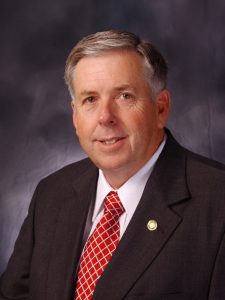 Missouri Gov. Mike Parson signed an executive order superseding an ethics policy implemented by his predecessor, former Gov. Eric Greitens.
Missouri Gov. Mike Parson signed an executive order superseding an ethics policy implemented by his predecessor, former Gov. Eric Greitens.
Greitens’ first act as governor in 2017 was to issue Executive Order 17-02, banning executive branch employees from accepting lobbyist gifts and prohibiting governor’s office personnel from lobbying the executive branch if they leave their jobs.
Parson’s Executive Order 18-10 now bans employees of the Office of the Governor from acting as an executive lobbyist until the end of the administration in which he or she served.
The order also alters what gifts executive branch employees are banned from accepting from lobbyists, opening the door for “educational” materials such as books and souvenirs valued at less than $10.
The executive order became effective as of November 20, 2018, when it was signed.
November 7, 2018 •
San Diego Passes Restrictions on City Officials
City of San Diego voters approved Measure L to limit lobbying and campaign activities of elected city officers. The measure increases the restriction on lobbying by former city officials from one to two years. The measure also eliminates the city […]
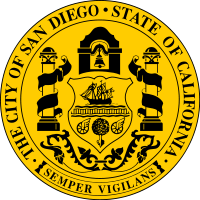 City of San Diego voters approved Measure L to limit lobbying and campaign activities of elected city officers.
City of San Diego voters approved Measure L to limit lobbying and campaign activities of elected city officers.
The measure increases the restriction on lobbying by former city officials from one to two years.
The measure also eliminates the city elective officer exception to receiving honoraria prohibited by state law.
October 25, 2018 •
North Dakota Ethics Policy Finalized
North Dakota Gov. Doug Burgum finalized an ethics policy that applies to the governor, lieutenant governor, and employees of the governor’s office. According to the new policy, lobbyists who request a meeting with the governor’s office will be encouraged to […]
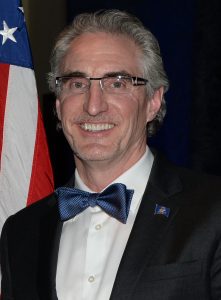 North Dakota Gov. Doug Burgum finalized an ethics policy that applies to the governor, lieutenant governor, and employees of the governor’s office.
North Dakota Gov. Doug Burgum finalized an ethics policy that applies to the governor, lieutenant governor, and employees of the governor’s office.
According to the new policy, lobbyists who request a meeting with the governor’s office will be encouraged to bring a principal of his or her client to the meeting. The policy also addresses conflicts of interests and gifts and honoraria.
No gift of any value may be accepted if offered with the intent to directly or indirectly influence the exercise of official action.
Any gift greater than $50 must be reported to the ethics officer and returned to the donor or given to charity.
September 20, 2018 •
Anne Arundel County Executive Introduces Ethics Reform Legislation
County Executive Steve Schuh proposed a bill to County Council to amend the county ethics provisions. Bill No. 80-18 increases late filing fee for lobbyists and employees, adds a revolving door provision, modifies certain definitions, requires employee ethics training, and […]
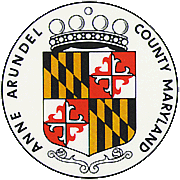 County Executive Steve Schuh proposed a bill to County Council to amend the county ethics provisions.
County Executive Steve Schuh proposed a bill to County Council to amend the county ethics provisions.
Bill No. 80-18 increases late filing fee for lobbyists and employees, adds a revolving door provision, modifies certain definitions, requires employee ethics training, and creates changes to comply with state ethics laws, among other provisions. The bill also updates who is required to file financial disclosure statements.
At the September 17 council meeting, an amendment passed to remove an exemption for free tickets and admission to certain events.
August 7, 2018 •
Lawsuit Filed to Remove Issue from Missouri Ballot
A lawsuit has been filed to remove a referendum from the Missouri ballot. On August 2, Sec. of State Jay Ashcroft certified an ethics initiative for the November general election ballot. The proposal would limit legislative gifts from lobbyists, reduce […]
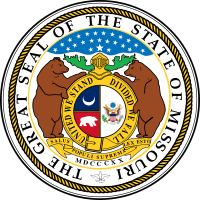 A lawsuit has been filed to remove a referendum from the Missouri ballot. On August 2, Sec. of State Jay Ashcroft certified an ethics initiative for the November general election ballot.
A lawsuit has been filed to remove a referendum from the Missouri ballot. On August 2, Sec. of State Jay Ashcroft certified an ethics initiative for the November general election ballot.
The proposal would limit legislative gifts from lobbyists, reduce campaign contribution limits for legislative candidates, create a two-year waiting period for public officials seeking to become lobbyists, and establish new procedures for redistricting.
The lawsuit claims the proposed referendum violates a provision of the Missouri Constitution limiting ballot measures to a single subject.
Combining multiple subjects in a single ballot measure can force voters to vote for a matter they do not support just to enact a proposal they do support.
State and Federal Communications, Inc. provides research and consulting services for government relations professionals on lobbying laws, procurement lobbying laws, political contribution laws in the United States and Canada. Learn more by visiting stateandfed.com.

